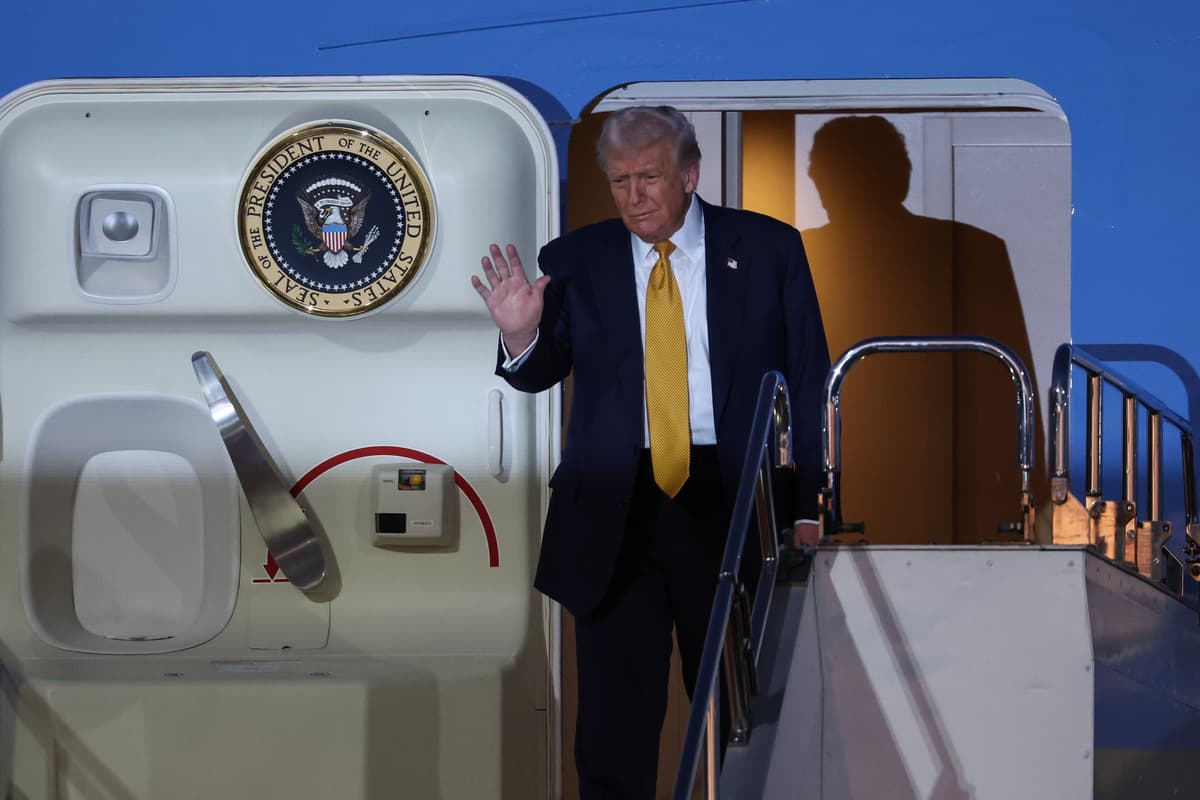It’s Crunch Time for Deal-Maker Trump Entering Three Days of High-Stakes East Asia Summitry
Tariffs, trade, and foreign investment in America are on the line when the president meets with the leaders of Japan, South Korea, and China.

SEOUL — President Trump faces what may be the toughest three days of summitry of his presidency this week with no guarantee of success despite his optimism about working out deals with China and the leaders of America’s two northeast Asian allies.
The sticking points with Prime Minister Sanai Takaichi of Japan and President Lee Jae-myung of South Korea are tariffs and investment. With China’s president, Xi Jinping, trade and tariffs should dominate a lengthy meeting in which rising Chinese power in Asia forms the backdrop.
A senior South Korean official, Oh Hyun-joo, was pessimistic during an appearance at the Seoul Foreign Correspondent’s Club about the chances that Messrs. Trump and Lee will work out even a compromise deal.
“There are some misunderstandings,” Ms. Oh, who serves on Mr. Lee’s national security staff, said when asked about Seoul’s pledge to invest $350 billion in America in return for sharply lower tariffs. The two nations are at odds over how much of that should come as direct cash investment and how quickly the investment should materialize.
“We have to take into consideration the interests of Korea as well,” Ms. Oh went on, adding, “It’s very unlikely it [a deal] will be concluded.”
The unusually frank acknowledgement was a reminder of the shockwaves that reverberated here in early September when American immigration officials rounded up about 500 Koreans, mostly technicians and engineers, at a factory being built in Georgia to manufacture batteries for electric vehicles.
Charged with having improper visas, the workers were soon released and sent back to Korea, but the raid soured the outlook of Koreans, considering that Hyundai and a partner, LG Energy Solution, were pouring more than $12 billion into the American economy to build the plant.
Mr. Trump, on Air Force One en route to Tokyo from Malaysia, sought to mollify Korean sensitivities by telling journalists he had been “very much opposed” to the raid. “Look, when they come in and they’re making very complex machinery, equipment, they’re going to have to bring some people in, at least at the initial phase,” he remarked.
Mr. Trump should get a foretaste of the problems he’s likely to encounter at Seoul on Tuesday, when he is at Tokyo for talks about trade and tariffs with Japan’s new prime minister, Sanai Takaichi.
Ms. Takaichi is expected to tell him Japan is not happy about the $550 billion that Mr. Trump demands the Japanese invest in America while imposing steep tariffs on imports from her country, notably on motor vehicles. Unfazed, Mr. Trump told reporters on Air Force One, “I think she’s going to be great.”
Mr. Trump also believes he’s on the verge of a deal with Mr. Xi, with whom he rounds off his high-level summiteering on Thursday before a gathering of the Asia-Pacific Economic Cooperation group in the ancient Korean capital of Gyeongju. The Treasury secretary, Scott Bessent, said he sees “the framework” of a deal in which China would resume its role as the biggest importer of American soybeans and also export vital rare earth to America while the U.S. lowers tariffs.
Skeptics, though, wonder about the durability of such deals while America suffers huge trade deficits with not only China but also with Japan and South Korea. Asked if “no deal is better than a bad deal,” as some Korean commentators have suggested, Ms. Oh said that is “not a position of the government.” Then, she added, “Currently the details are being ironed out.”
Amid the debates over tariffs and trade, Japanese and Korean leaders can be grateful that differences on American defense commitments are not much of an issue.
“The security issue is not high on the agenda,” Ms. Oh said when asked by the Sun whether Mr. Trump might want to withdraw some of America’s 28,500 troops from Korea or demand that Seoul contribute more to their costs. “We don’t have any big differences when it comes to security and relations among allies.”
In Japan, Ms. Takaichi is downright enthusiastic about the American alliance. A right-wing hawk, she has called on Japan to build up its own defenses while hinting she would like to weaken Article 9 of Japan’s constitution banning Japanese “self-defense forces” from going to war overseas.
Mr. Xi, meanwhile, is likely to proclaim China’s peaceful intentions while sending his warships and planes on intimidation missions around the Free China province of Taiwan and the South China Sea and supporting North Korea to the hilt against South Korea, Japan and, of course, America.

